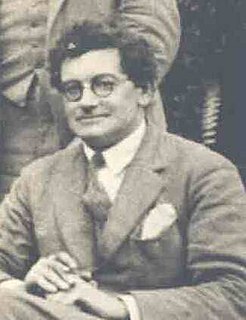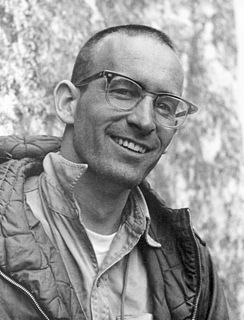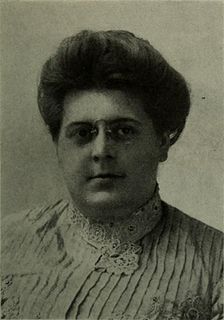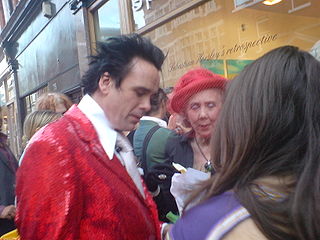A Quote by J. W. N. Sullivan
We have reached one of the great stages in the adventure of thought … We are required to see the universe with new eyes, and it is because it makes such demands and also holds out the promise of realizing them, that the study of science is so supremely worth while.
Related Quotes
What makes a free thinker is not his beliefs, but the way in which he holds them. If he holds them because his elders told him they were true when he was young, or if he holds them because if he did not he would be unhappy, his thought is not free; but if he holds them because, after careful thought, he finds a balance in their favor, then his thought is free, however odd his conclusions may seem.
You may look back on your life and accept it as good or evil. But it is far, far harder to admit that you have been completely unimportant; that in the great sum of things all a man's endless grapplings are no more significant than the scuttlings of a cockroach. The universe is neither friendly nor hostile. It is merely indifferent. This makes me ecstatic. I have reached a nirvana of negativity. I can look futility in the face and still see promise in the stars.
As we begin the 21st century, the Hubble space telescope is providing us with information about as yet uncharted regions of the universe and the promise that we may learn something about the origin of the cosmos. This same spirit of adventure is also being directed to the most complex structure that exists in the universe - the human brain.
The scientific content of Genesis 1-11 holds special significance for me because it revolutionized my thinking and, thus, changed my life's direction. Until I reached my late teens, my singular passion was science, astronomy in particular. My life's purpose was to learn more about the universe; nothing beyond that really interested me.
Joy is what makes life worth living, but for many joy seems hard to find. They complain that their lives are sorrowful and depressing. What then brings the joy we so much desire? Are some people just lucky, while others have run out of luck? Strange as it may sound, we can choose joy. Two people can be part of the same event, but one may choose to live it quite differently than the other. One may choose to trust that what happened, painful as it may be, holds a promise. The other may choose despair and be destroyed by it. What makes us human is precisely this freedom of choice.
The whole point of science is that most of it is uncertain. That's why science is exciting--because we don't know. Science is all about things we don't understand. The public, of course, imagines science is just a set of facts. But it's not. Science is a process of exploring, which is always partial. We explore, and we find out things that we understand. We find out things we thought we understood were wrong. That's how it makes progress.
The Law requires much, but offers no help in the carrying out of its requirements. The Lord Jesus requires just as much, yea even more (Matt. 5:21-48), but what he requires from us he himself carries out in us. The law makes demands and leaves us helpless to fulfill them; Christ makes demands, but he himself fulfills in us the very demands he makes.






































